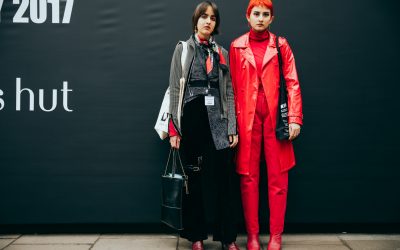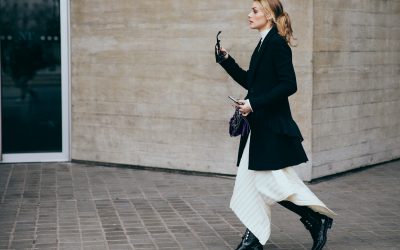No Egos, No Sponsors, No Stars: How Benji Sasse Co-Founded Meadows in the Mountains, the Anti-Festival You’re Longing For
Building a festival on the top of Bulgaria’s Rhodope Mountains with no industry know-how? Easy
Words Mary-Jane Wiltsher
Portrait Photography Cameron Bensley
Festival Photography Jack Pasco & Aaron Klein
“It feels quite godly being up there, watching the sun rising over the mountains with the clouds below you – and in summertime, when the place is covered in wildflowers, all the butterflies and fireflies come out.” Listening to Meadows in the Mountains co-founder Benji Sasse describe the idyllic Balkan setting of the festival that he and his brother Damian built from the ground up, with zero industry know-how, makes you want to drop everything and jump on the next flight to Plovdiv.
Perched 850 metres above sea level in the rugged heart of the Rhodope Mountains, Meadows prides itself on being everything that its commercial, big name-peddling competitors are not. With the help of their father, Duncan, and mother, Candy, the Sasse brothers created a boutique festival which, in its seventh year, retains all the hallmarks that have characterised it since its inception: intimate (just 1,700 people) and fiercely eco-friendly, with a music policy that focuses on new and emerging artists.
That’s no small feat in an oversaturated market which this year sees Secret Garden Party – a festival which in its early years seemed to be the very definition of a small-scale, free-spirited festival – open and close its gates for the last time. A far-flung setting has, perhaps, been Meadows’ saviour: flights are limited, transfers lengthy, and village accommodation basic, meaning its revellers are among the most committed of festival-goers.
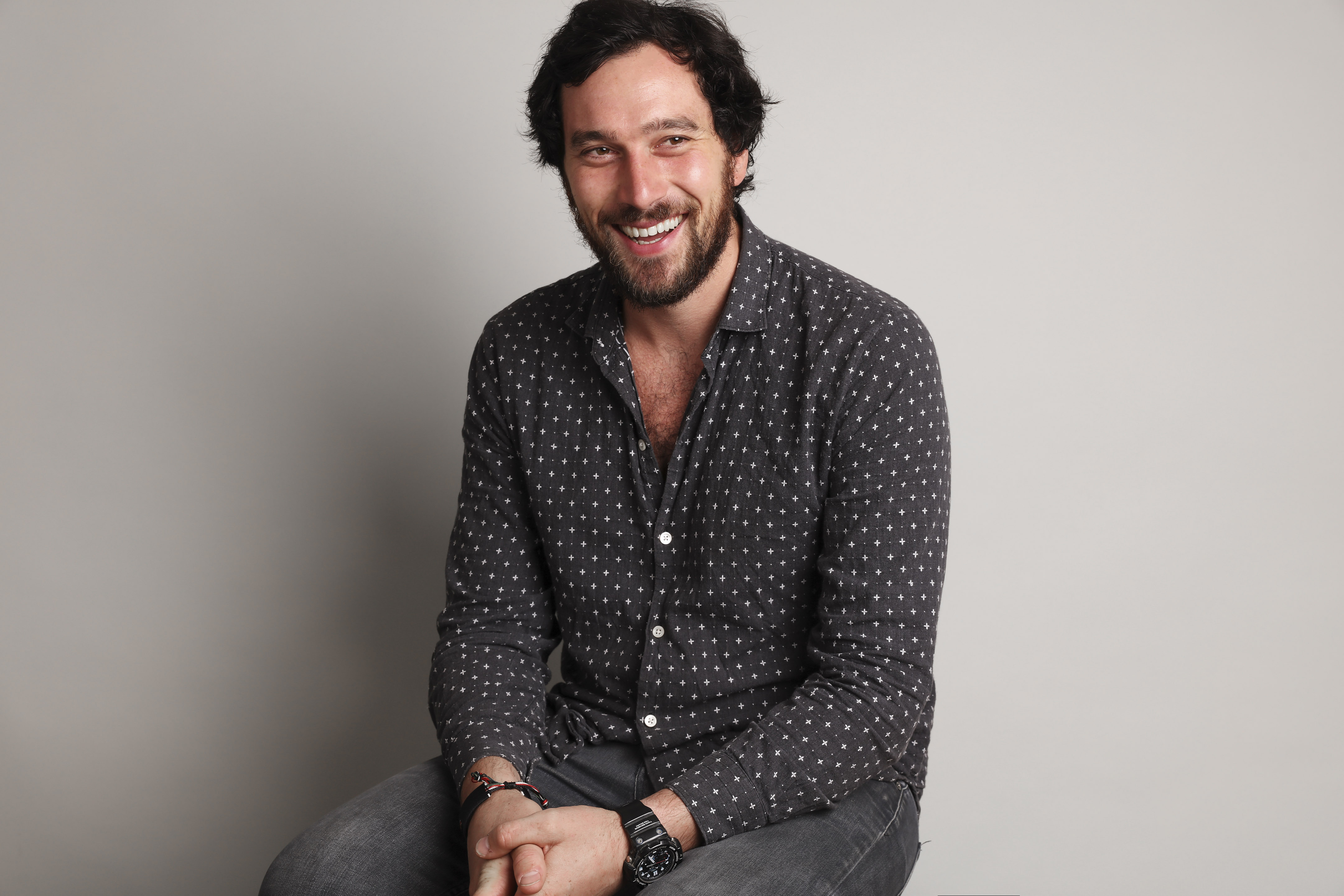
Benji Sasse, Meadows in the Mountains co-founder
Sasse is modest about his achievements, stressing that Meadows “doesn’t make money – most other people would probably have cut their losses by now, but for us it’s a labour of love.” His vision for the festival is “to be educational and to do something positive”, including plans to off-set its carbon footprint by planting trees, installing more solar panels and composting toilets. A site-wide ban on plastic has already been implemented – an idea he took from Burning Man.
These days, he juggles his work as a civil engineer with travelling the world as a festival consultant. When we meet at PHOENIX HQ, he has just returned from a trip to Africa to work on Soysambu in the Wild, a non-profit arts and music festival to raise funds for protecting wildlife at Soysambu Conservancy. But just how do you start a festival from scratch? We sat down to talk mixing family with business, Balkan folklore, and towing sound systems up mountains with donkeys.
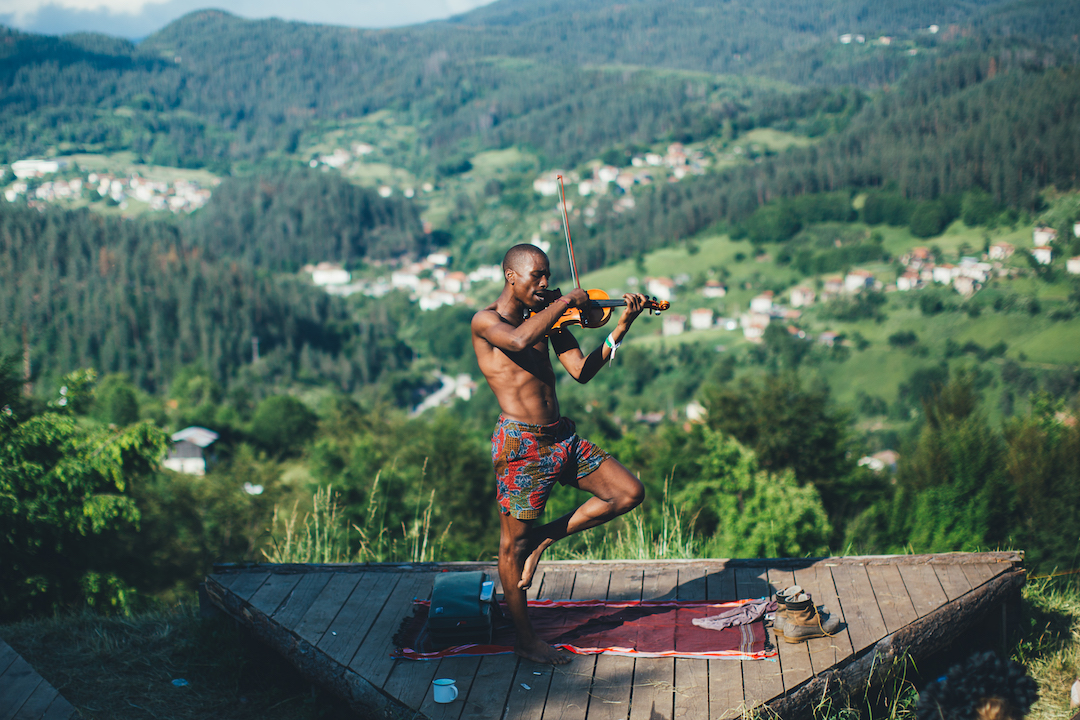
How did you and Damian first come across the Meadows site?
My mum moved out to Bulgaria ten years ago in 2007, so she took the family out there originally. It’s a quiet little Balkan village, only 10-15% inhabited, with a lot of the houses falling apart. It can be a little ghostly up there in the winter, when it’s minus 20 degrees and the village is under a metre of snow. The festival site itself was originally undeveloped meadows where the shepherds took their flocks of sheep. In summertime it’s magical, like something out of Alice in Wonderland.
Where did the idea for a festival come from?
It was thanks to Damian’s vision, he was the one who had the idea of a music festival. In the beginning it was just a small group of our best friends from Cambridge. We hadn’t even discovered the sunrise point at that stage, which is probably the most killer spot on the site itself. One weekend we stayed up a bit too late and were surprised by this magical sunrise on top of the mountains with the clouds below.
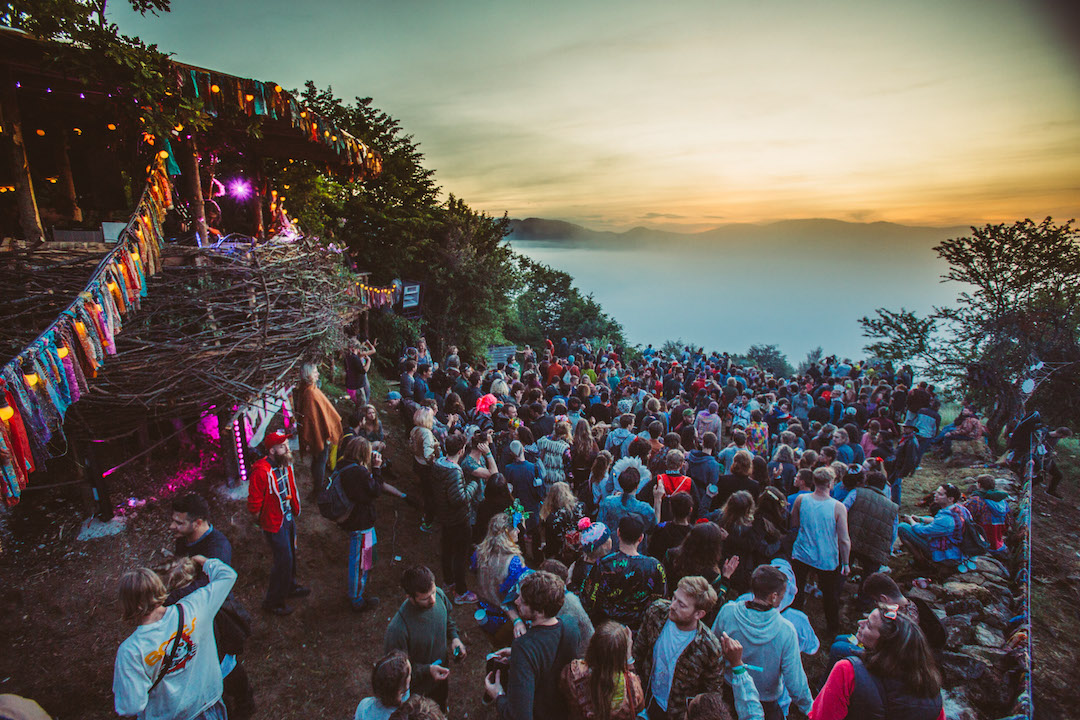
Did your family have any background in the field?
No, not at all! Damian and I have a background in construction and my dad, Duncan, and mum, Candy, used to work together in the horse racing industry, breeding and training pedigree horses. Mum now runs an amazing dog charity in Bulgaria called Little Angels Rescue BG, rescuing dogs and rehoming them. It’s pretty manic trying to run a music festival with your family when none of you have done anything like that before. It was a shambles, but people loved it – someone described it in a review as ‘a good kind of chaos’. We owe a lot to Veronique Cecchini, who came on board in year two, because at the start we didn’t know what the hell we were doing!
What are your parents’ roles in the business?
My dad was always on the logistics, organising all the buses and taxis as well as everyone’s accommodation. Mum organises all the food traders and the catering.
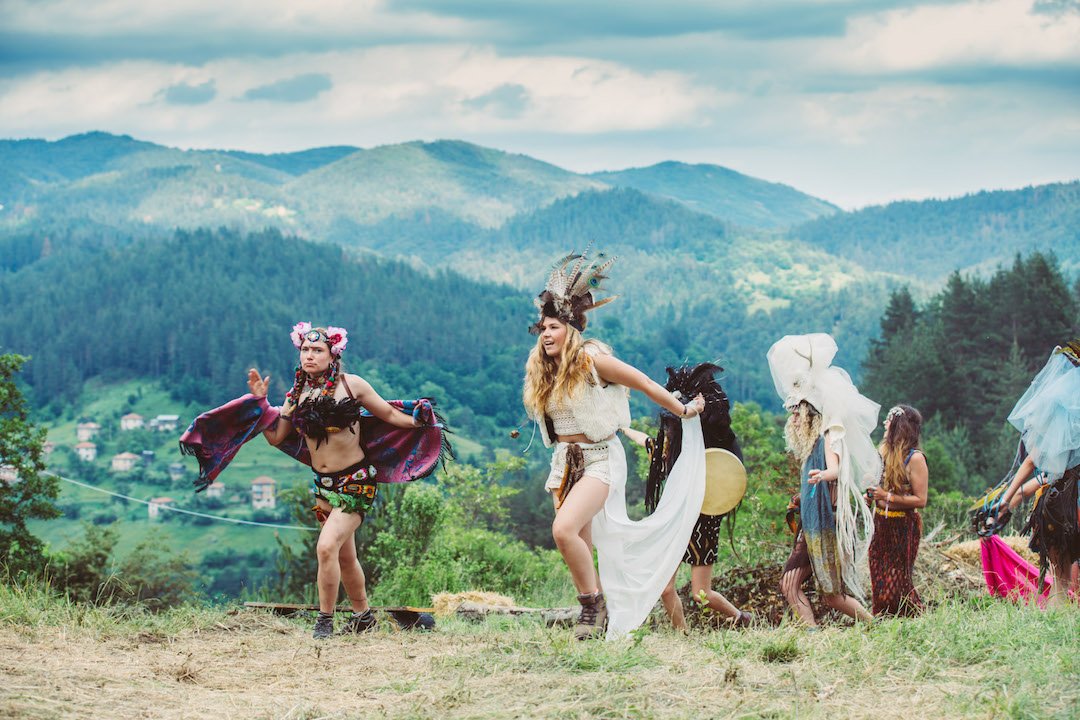
Working with the local community is a big part of our ethos, and something I think a lot of other festivals forget to do. We help the local villagers rent out their houses, which generates them crucial income to be able to survive for the rest of the year.
What were the biggest challenges in the beginning?
Trying to get a sound system out to Bulgaria was a nightmare! In the early days we were towing stuff around with donkeys and carts. But before that, we wondered how on earth we were going to get the money together. Most festivals are run by aristocrat families who have land and money, but we came from a middle class family. In the end, an old family friend of ours, Guy Belcher, gifted us £10,000. Without that money it would never have happened. He was about 80 years old, and in the first couple of years of the festival, he’d be up there on the mountain with us. He was a very special character and had that ability to mix with young people, and would sit by the main stage with his chilled bottle of wine.
Above: A view into the magical happenings in the Rhodope mountains for the 2016 instalment of Meadows In The Mountains
Elements of Meadows have been compared to Secret Garden Party, Burning Man, and Glastonbury among others. Where did you draw inspiration from?
Californian festivals have been a big inspiration for me – they’re all about spirituality, organic food, looking after the land, healthy living.
Damian has always been heavily into dance music, so he took a lot of his inspiration from that. Our grandparents bought a hotel in Ibiza in the ’50s, so we spent a lot of our childhood there, and Damian lived there through Ibiza’s golden years in the early 90s.
We went to SGP in the early days – it’s super sad that this will be its last year – and later on, inspiration came from Burning Man. I went in 2013 and saw another side of what a festival can be, something less commercial that has a soul. It’s not a money festival, people come and trade and there’s a bartering system. It’s a festival that reminds people to give rather than take. The whole idea of 60,000 people going into a desert and leaving without a trace, that blew my mind.
Glastonbury is actually the one festival I’ve never been to, although Damian’s been and I’d love to go. Musically it’s so strong and so diverse, but one thing I’ve always disliked about it from afar is the after-effects and these fields of rubbish. But saying that, I think Glastonbury is one of the biggest donators to Green Peace.
What’s your ongoing vision for the festival?
Festivals evolve; when we started Meadows it was about the music, but now it’s about more than that. Meadows isn’t a money maker, it’s a labour of love, and that makes us different. We want it to be educational and to do something positive, and there’s no better way to try to spread a message about making the world a better place than at a music festival, when people are in their most receptive, open-minded state.
Right now we want to try to offset Meadows’ carbon footprint by planting enough trees to offset everyone’s flights. We’ve implemented a system where there’s no plastic on site – I took that idea from Burning Man – and we’ll have more composting toilets and solar panels, angling towards being a very green festival that has no negative effect on the environment. It’s a long journey and it’s not going to happen overnight, but it’s an important message to put across. We’re also looking to expand our camping options, as there’s only so much accommodation in the village. Again, it’s tricky as we have virtually no flat land to camp on, but the main goal is to work with the local environment.
There’s no better way to try to spread a message about making the world a better place than at a music festival, when people are in their most receptive, open-minded state.
How have the local villagers reacted?
Working with the local community is a big part of our ethos, and something I think a lot of other festivals forget to do. We help the local villagers rent out their houses, which generates them crucial income to be able to survive for the rest of the year. They’re coming from a post-communist world where pensions are nothing, they get an absolute pittance. They come up onto the site to sell their produce, and all locals receive free tickets, not that it’s their bag to stay up until 6am listening to dance music.
How would you describe Meadows’ music policy?
Part of our main focus from early on was to promote underground music rather than have big headliners, to be taste-makers and find breakthrough acts who haven’t been showcased. From early on we knew that the festival market was saturated, with lots of festivals essentially doing the same thing, and we want to be the opposite of that, so that needed to come across in the bookings. Plus, budget-wise we could never really afford to book big acts, so we went the other way.
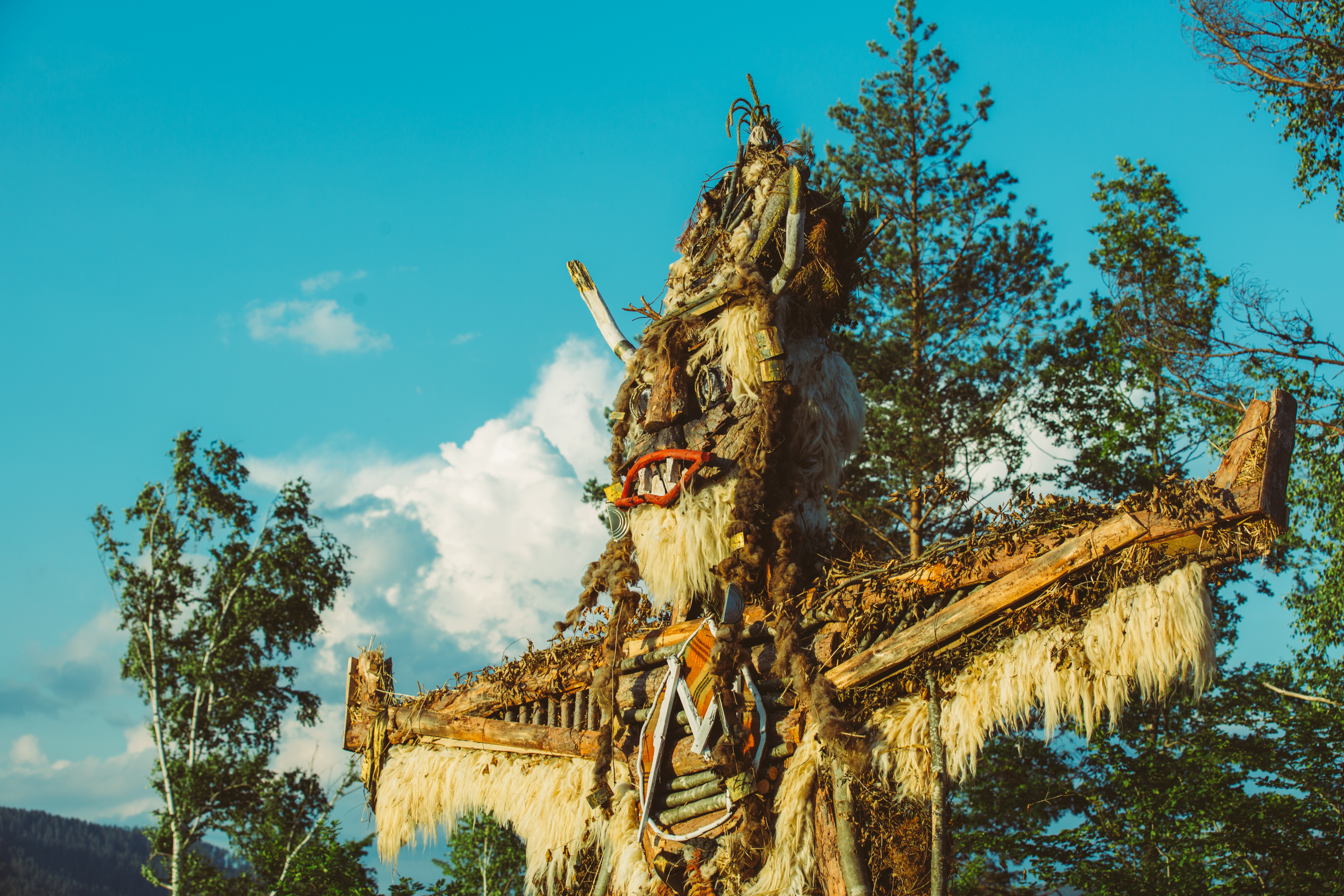
What’re your plans for the summer?
We’re hoping to be involved in the Eclipse Festival in Oregon, which is by the same guys who run the Symbiosis Gathering and Burning Man. They follow the solar eclipse and invite all of the best festivals in the world to collaborate and create this epic festival.
Do you and Damian now work solely on festivals?
I still work as a civil engineer and have worked on festivals like Wilderness, Burning Man, Secret Garden Party. I just got back from Soysambu in the Wild, which generates money to try to save all the lions, giraffes and local wildlife. I also run a live music venue called Folklore on Hackney Road. Damian’s got his own events planning and set production company called The Bearded Butler and does a lot of builds at other festivals, London Fashion Week and big exhibitions too.
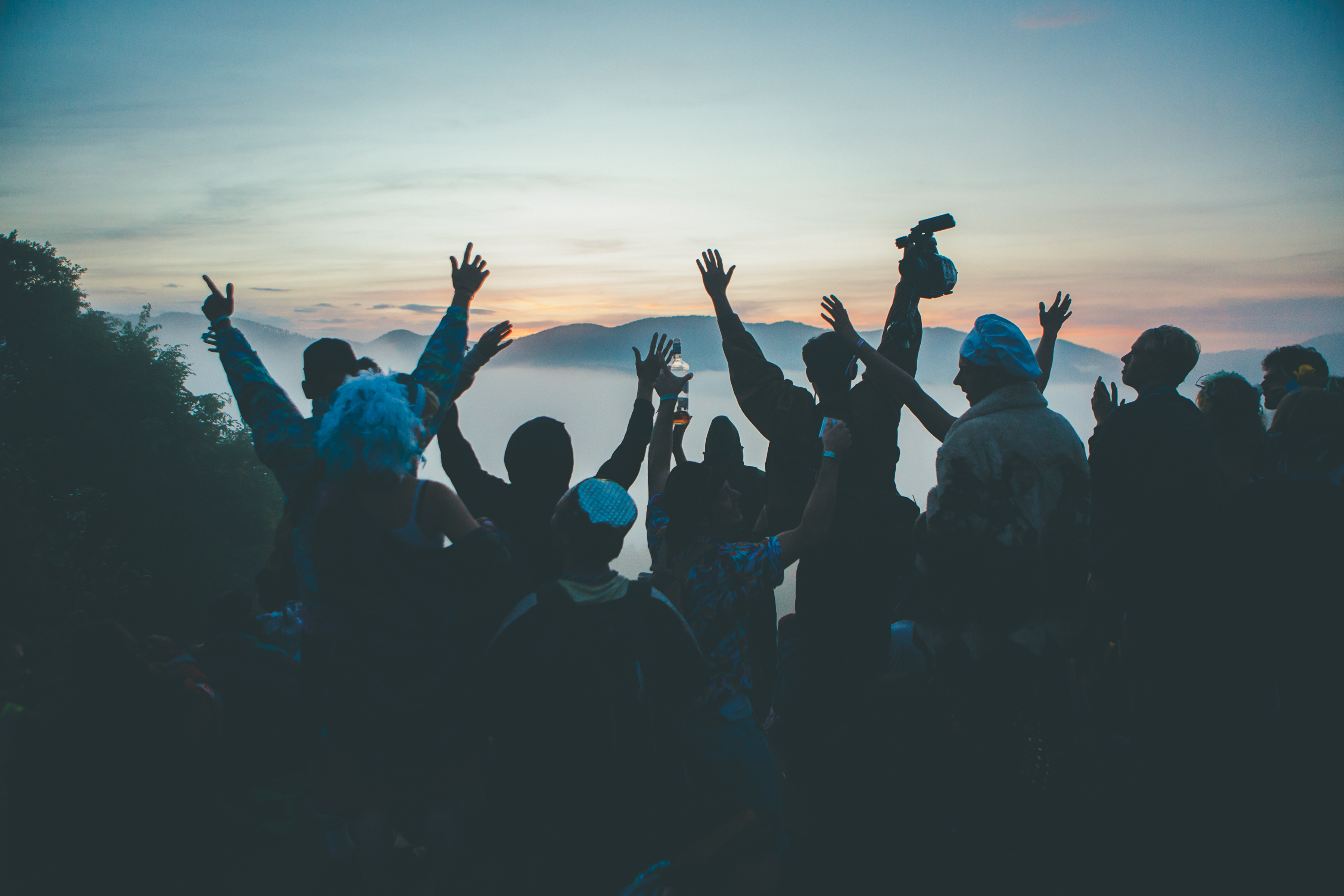
You travel a lot – what would be your ideal way to spend a free weekend back home in London?
I don’t really have a social life anymore, so seeing friends would be a priority! I don’t go to big clubs much now but prefer getting around a table with my best friends, some food and good wine. London is so culturally rich and I enjoy going to live gigs here, but I’d also love to get out of the city and rent a cottage in the middle of nowhere for the weekend – hopefully with a friend who has a dog.
Last book you read?
It was a book about the Bulgarian people, and how strong the empire used to be. It’s so rich, all the history, and I’d love to spend more time researching that. We’ve never really had a theme for Meadows but I’m hoping that we might be able to do something with this idea of Bulgarian folklore – it’s quite Pagan and there are references to the idea that the Meadows site used to be considered the land of the dragons.
Related reading…
Meet K Á R Y Y N, the LA-based musician with a love song for Aleppo
The musician opens up about Syria, spirituality and using anger in a positive way
Meet the Most Stylish Show-Goers from Day 4 of London Fashion Week AW17
From bloggers to Editors-in-Chief, we round up the best of the street style contingent
Meet the Most Stylish Show-Goers from Day 3 of London Fashion Week AW17
From bloggers to Editors-in-Chief, we round up the best of the street style contingent


